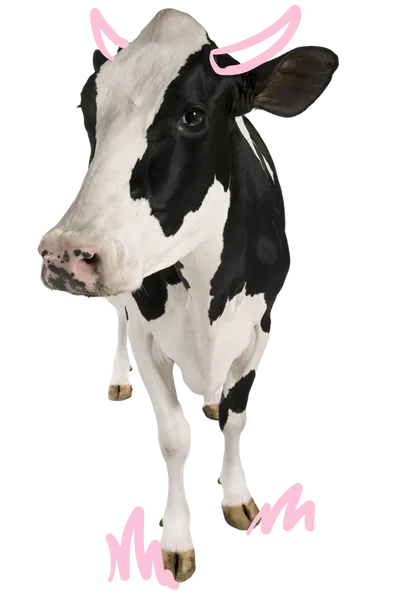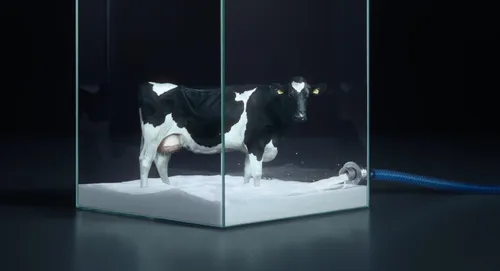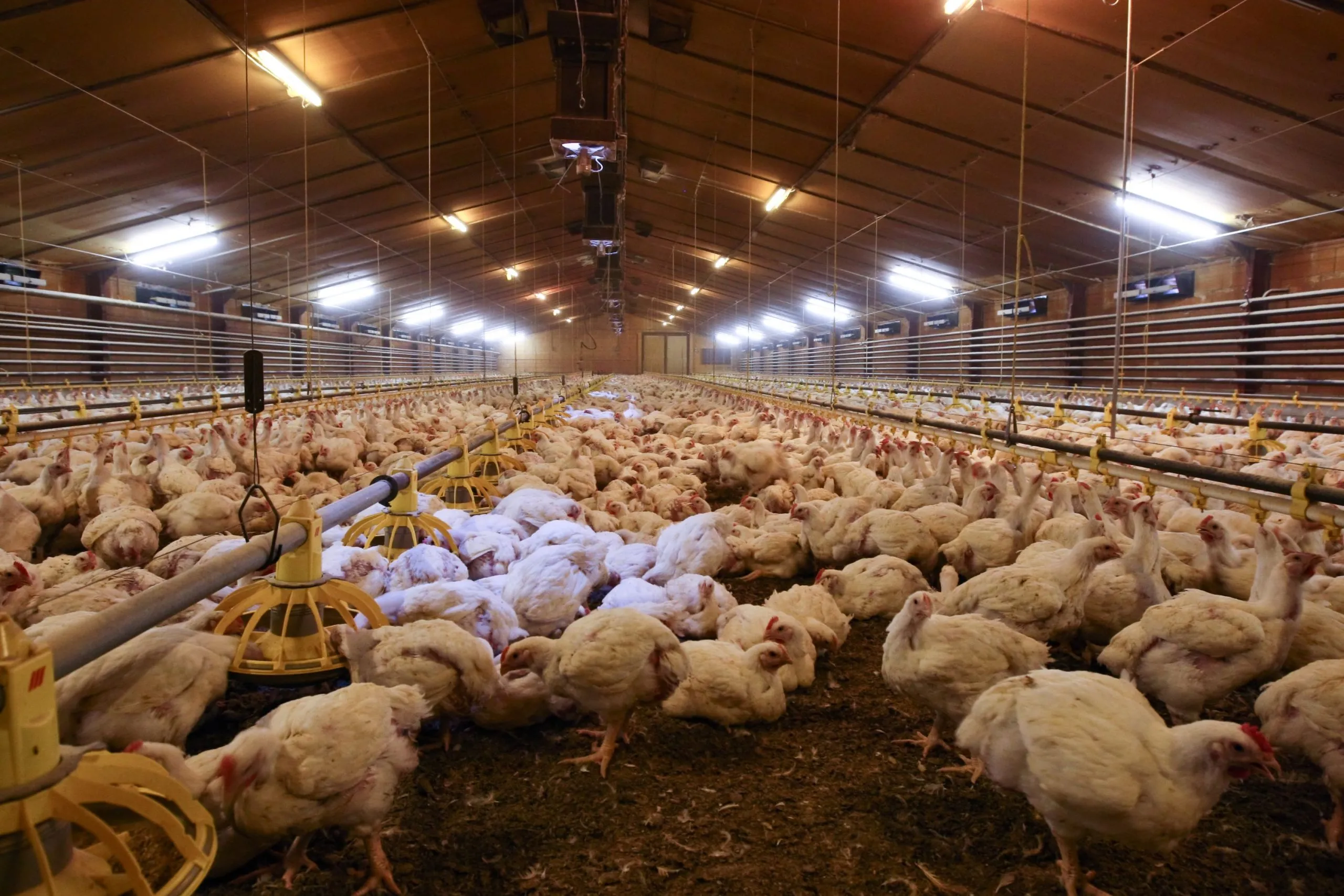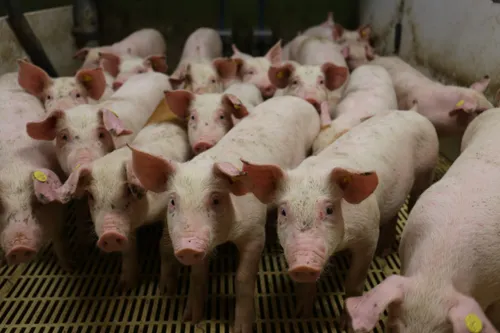our campaigns

our three most important campaigns
Our three most important campaigns are focused on improving the lives of dairy cows, better legislation and enforcement regarding animal welfare, and reducing meat consumption. Each of these themes contributes in its own way to our dream.
A better life for dairy cows
The life of an average dairy cow is gruelling. She is pushed to her limits to produce more and more milk, often in poor living conditions. Consequently, many cows fall ill. While a cow can naturally live up to twenty years, on average, a Dutch dairy cow is sent to slaughter around the age of six. By then, she’s worn out, exhausted, and depleted.
We envision a future where cows produce much less milk, have ample space for natural behaviour, and spend most of their lives where they belong: in the pasture. Step by step, we’re working towards this dream. Step one: supermarkets and leading brands must stop selling sloopmelk, our term for milk without proper animal welfare certifications. All dairy in supermarkets should carry at least one star of the ‘Better Life’ welfare label or come from Dutch organic farms. This way, cows won’t have to produce as much milk, and they’ll enjoy better living conditions, such as more room to move, more time in the pasture, and/or better resting areas.
To effectively address supermarkets and leading brands, we need broad public support among the Dutch population. However, many people still associate cows with beautiful green pastures and believe that animal welfare is adequate. That’s why our focus has been on revealing the abuse in the dairy industry.

Better legislation and enforcement
The massive animal suffering in factory farming proves that we can’t entrust animal welfare solely to the industry. Both Dutch and European laws provide avenues for better animal welfare protection. However, there’s often a lack of concrete implementation, or the emphasis is on aspects other than the animals’ welfare. Even where clear and specific legislation exists, enforcement often falls short.
Wakker Dier advocates for better lives for animals to be explicitly defined in legislation and rigorously enforced by the authorities. We do this through legal procedures.
Crammed chickens
After two years of our insistence on transparency, the evidence finally came to light last year: the Netherlands has been violating the law for years by allowing the cramming of too many (factory farmed) chickens into a barn. The regulatory authority NVWA has been turning a blind eye. Wakker Dier initiated multiple legal proceedings, after which the NVWA and the Ministry of Agriculture, Nature and Food Quality now acknowledge the “error” and are discussing a policy change together. In addition, a motion has been submitted to the lower house of the Dutch Parliament to abolish the highest stocking density category in barns.

Reducing meat consumption
Almost everyone now agrees that we should eat less meat, dairy and eggs—for our health, for the environment and especially for the millions of animals that end up on plates after short and miserable lives in factory farming. Yet meat consumption in the Netherlands is decreasing very slowly and dairy (cheese) consumption hasn’t decreased at all.
Wakker Dier aims for a swift reduction in the consumption of animals. Our campaigns are focused on companies with the most power and potential for change. Supermarkets are by far the largest meat sellers, and they have the means to influence what their customers buy. That’s why we encourage them to actively promote less meat and more plant-based alternatives. Our goal is that by 2030, at least 60 percent of the proteins sold by food retailers are plant-based, while ensuring that the total amount of protein they sell doesn’t increase.
Currently, sixteen caterers and the supermarkets Albert Heijn, Aldi, Crisp, Dirk, Ekoplaza, Jumbo, Lidl, Odin, Plus have committed to our goal.

